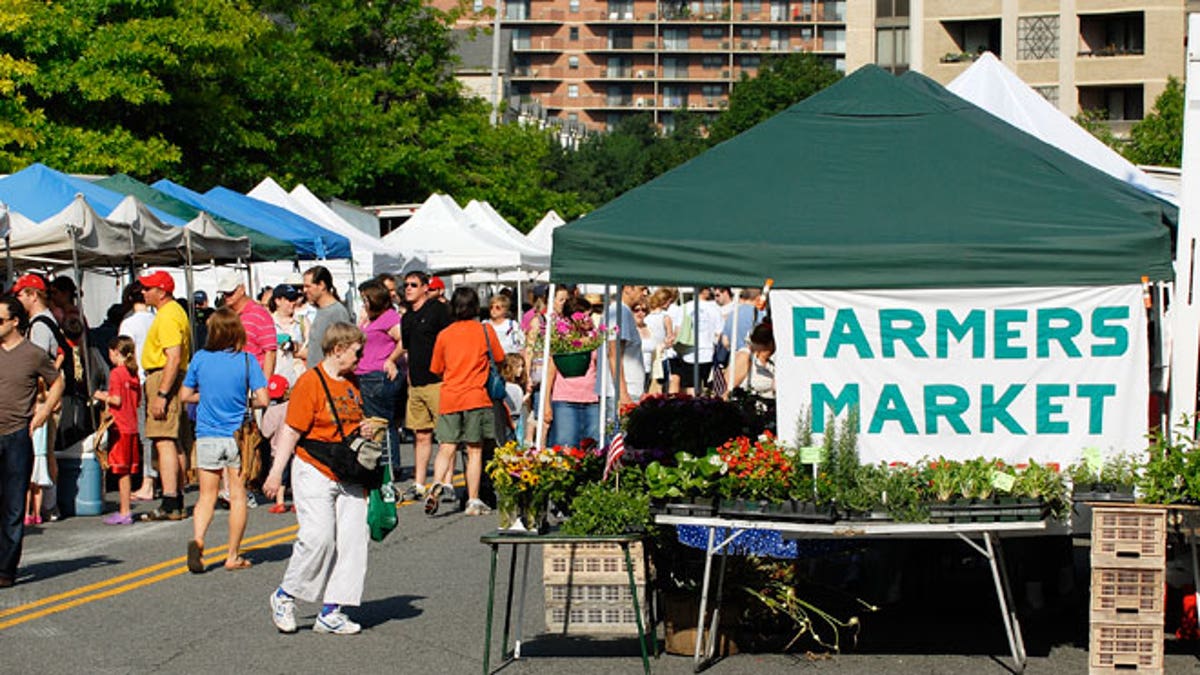
(Reuters)
To get the most nutritional bang from fruits and vegetables it’s best to go to the original source – the whole food, be it an apple, beet, eggplant, raspberry, and so on. Go one step better and get these foods at their nutritious, delicious peak by buying freshly picked goods at your local farmers market.
Close proximity between farmer and consumer is what distinguishes a farmers market from a supermarket that carries produce transported long distances, during which time freshness, taste and nutrients can suffer.
A farmers market brings you up close and personal to food in its most natural form, and in this “unprocessed” arena your senses will reawaken to the sights, smells, feel and tastes of what’s super-fresh that particular day.
To help you make the most of shopping at your local farmers market:
Know what foods are in season. Some markets offer calendars that tell you when certain fruits and vegetables will be available.
Learn from the pros. Often it’s the farmer him/herself selling his/her food, so who better to ask about when and how their food was harvested, whether it contains pesticides, or if it’s USDA organic? While you are at it, go ahead and ask for cooking tips, recipe ideas and advice on storing and handling.
Be adventurous. Whereas supermarkets cater to mainstream tastes, farmers markets appeal to customers who are open to trying different varieties. Take this opportunity to explore new foods and flavors, knowing you’ll get the best there is - ready to eat.
Arrive early. “The early bird gets the worm,” as the saying goes, and this holds true for farmers markets. To get the choicest goods always try to arrive early.
Be picky. Common sense tells you that bruised, dull or off-color produce is past its prime. Go for what’s brightest, firmest, and ripest (perhaps the most fragrant), or choose produce that is just a bit before its peak if you won’t be eating it for a few days. Note: Unless you happen to live in the tropics, if you come across topical produce such as bananas and whole pineapples figure they came through a distributor that also sells to your supermarket.
Store purchases with care. For optimal nutrition be sure to properly store what you buy as soon as you get home. Organic foods may be easily damaged so treat them with extra care. Immediately place fresh herbs in re-sealable baggies and store in the refrigerator. Don’t wash produce until you’re ready to eat or cook it.
Bring your kids! In this age of convenience children may not think much about where their meals come from. Bringing children to the farmers market is a great way to teach them about healthy food and eating. Bonus points if you get them to cook it with you!
Tanya’s tip: Too busy to stop by a farmer’s market? Join CSA (Community Supported Agriculture), which lets you own a small “share” of a local farmer’s yield and receive a weekly box or bag of fresh produce delivered to your doorstep. It’s a win-win because you get super-fresh food while helping support a local farm. To find a farm near you, visit localharvest.org.
Tanya Zuckerbrot MS, RD, is a nationally known registered dietitian based in New York and the creator of F-Factor - a proprietary high-fiber nutrition program for weight loss, wellness and for treating various medical conditions. Tanya authored the bestselling weight loss book The F-Factor Diet, and her next book The Miracle Carb Diet will be published in December 2013. She is the first dietitian with a national line of high-fiber foods, which are sold under the F-Factor name. Follow Tanya on Facebook, Twitter and LinkedIn, and OpenSky.
